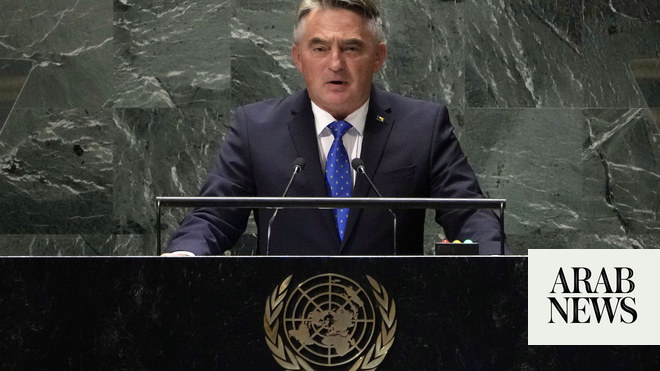
GENEVA — Bosnia and Herzegovina is showing how even highly polluted cities can be transformed into well-planned, climate-resilient urban hubs.
With one of the world’s highest levels of air pollution, the central Bosnian city of Zenica, an industrial hub, is now attempting to turn around its fortunes, with the backing of the UN Development Program (UNDP).
A host of projects are under way in Zenica, including river-bed cleaning (to avoid flooding), ending the use of coal for municipal heating and, as part of UNDP’s Go Green Initiative, tree-planting.
UNDP-supported initiatives are also designed to have a beneficial effect on surrounding rural areas, which have suffered from severe flooding in recent years.
The United Nations General Assembly has designated the Oct. 31 as World Cities Day. The Day is expected to greatly promote the international community’s interest in global urbanization, push forward cooperation among countries in meeting opportunities and addressing challenges of urbanization, and contributing to sustainable urban development around the world.
2020 Theme: Valuing Our Communities and Cities
The impact of COVID-19 has re-shaped urban life around the world. Local communities have played a key role in contributing to keeping people safe and maintaining some economic activities.
Community value encompasses local volunteering and people organizing in their own neighborhoods as well as social movements that challenge poverty, systemic discrimination and racism.
In informal settlements and slums in particular, communities are making a significant contribution while individual households in urban areas are providing an enabling environment for work and study in the home.
UN-Habitat’s latest World Cities Report reinforces the benefits of cities that engage all stakeholders, including local communities to foster sustainable cities.
The secretary-general has identified cities and communities as being on the frontline of the COVID-19 response. Collectively, we can truly foster sustainable cities for all.
Community activities can no longer be taken for granted or under-resourced. Policy makers and urban managers need to engage communities systematically and strategically in urban planning, implementation and monitoring to co-create the cities of the future.
The recognition of communities’ value must be maintained beyond the virus outbreak. In the transition to a new sustainable urban normality, local communities must play an expanded role supporting government stimulus packages for employment creation, delivery of essential services, ensuring a green-economic transformation, the provision of adequate shelter and public space and reestablishment of local value chains. — UN News








